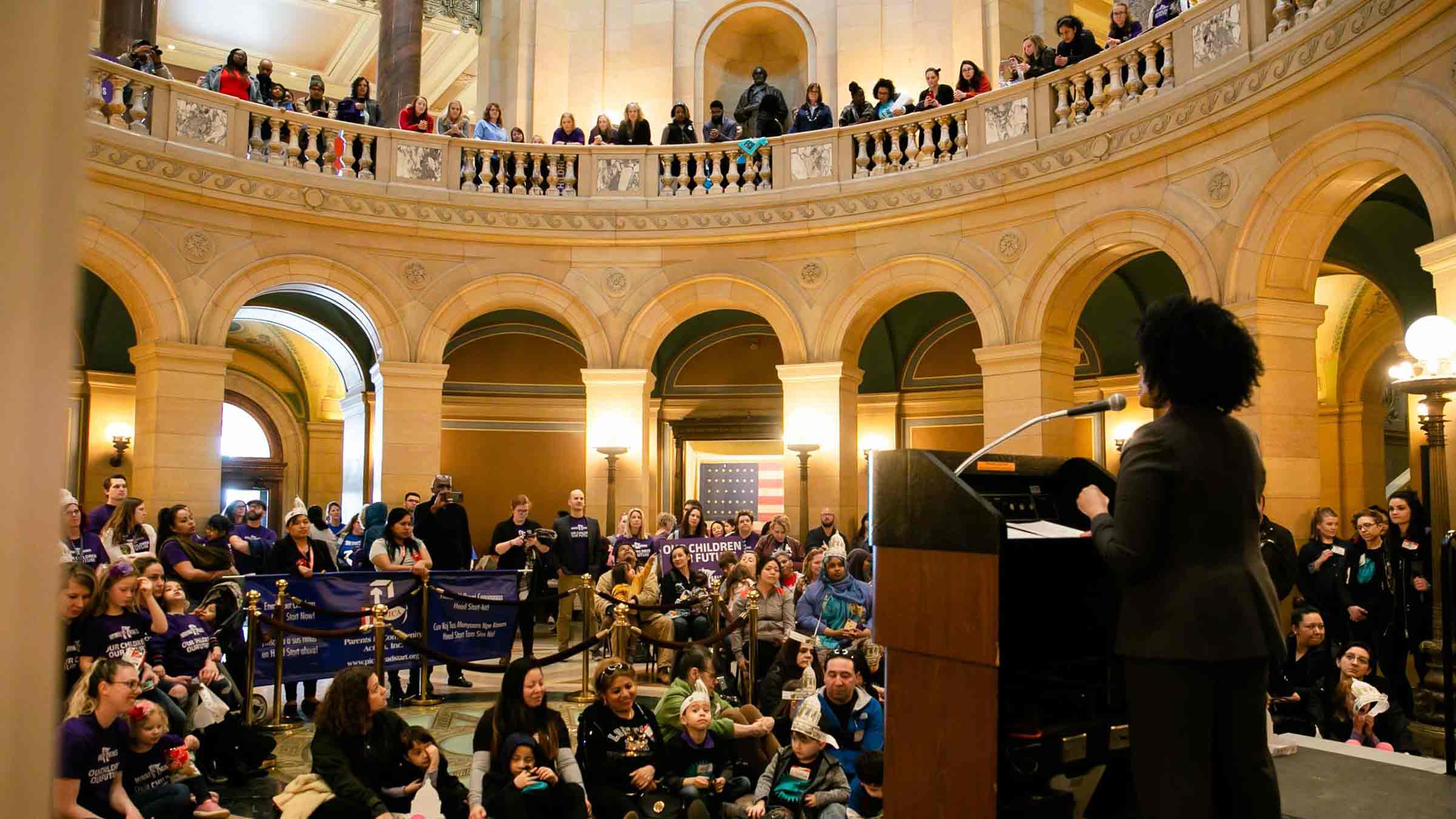
Greater Twin Cities United Way recently announced our policy priorities and advocacy agenda for the 2022 Minnesota state legislative session, which began on Monday, January 31. Informed by our nonprofit partners from across the 9-county metro area, our priorities are focused on advancing equitable policies and funding that support a community where all people thrive, regardless of income, race or place. In addition to amplifying the voices of our nonprofit partners, we’ll use real-time data from United Way’s 211 resource helpline at the Capitol.
Our advocacy agenda includes issues we lead, support and endorse related to early childhood education, housing stability, food security, economic opportunity, supporting the nonprofit sector and more. Acooa Ellis, United Way’s Senior Vice President of Community Impact, was recently quoted in Governor Walz’s and Lt. Governor Flanagan’s announcement regarding their budget proposal to support Minnesota children and families.
The “benefits cliff” occurs when a public benefit program quickly tapers off, or phases out completely, resulting from a small increase in household earnings. The small gain in income, coupled with a loss of benefits, ultimately causes many families to backslide financially. This means people often must make a difficult choice between taking a raise or promotion and keeping their benefits.
This system creates a situation in which individuals and families are left being reliant on their benefits, rather than moving toward wealth-building and economic security — which affects both individuals’ and families’ financial independence as well as the state’s overall economy.
Wraparound services such as case management, job training and mental health supports are proven to help prevent homelessness. Without concerted, multi-sector, regional-scale change, many of the 9,000 youth exiting foster care and adults exiting incarceration each year will become homeless.
Our Pathways Home innovation initiative would support people leaving these systems into stable housing by providing wraparound services before an episode of homelessness begins and supporting these marginalized populations who are often excluded from our economy.
Currently in Minnesota, there is a mismatch between available jobs, including some of the highest paying jobs in our state, and the skills needed to succeed in these jobs. There is also a need to reduce barriers for historically excluded workers to enter new fields and leadership positions and for stronger pipelines of workers into companies. United Way seeks to remove barriers to family-sustaining employment by increasing the flexibility of career pathways grants.
We are excited to advance this work at the virtual Capitol this session, and we hope you’ll join us at our upcoming advocacy events!
Homeless Day on the Hill will be held March 9-11. Join Minnesota Coalition for the Homeless and hundreds of community members for a day of advocacy, meetings with lawmakers, committee hearings, stories of impact and more. You can join this three-day virtual event from anywhere in the state to advance key policy priorities that will bring us closer to our shared vision that every Minnesotan has a safe and dignified home.
We also hope you’ll join us for the Start Early Funders Coalition Legislative Briefing on March 10 and Advocacy for Children Day Virtual Rally on March 16, where we’ll be engaging legislative leaders, nonprofit partners and community members. Stay tuned to learn more about how to get involved!
Through our unique position in the community, United Way leads and influences the implementation of policies and funding that support immediate needs and drive systemic change. We invite you to join our advocacy network to get updates and advocate alongside us this session. We also encourage you to learn more about our work in advocacy.